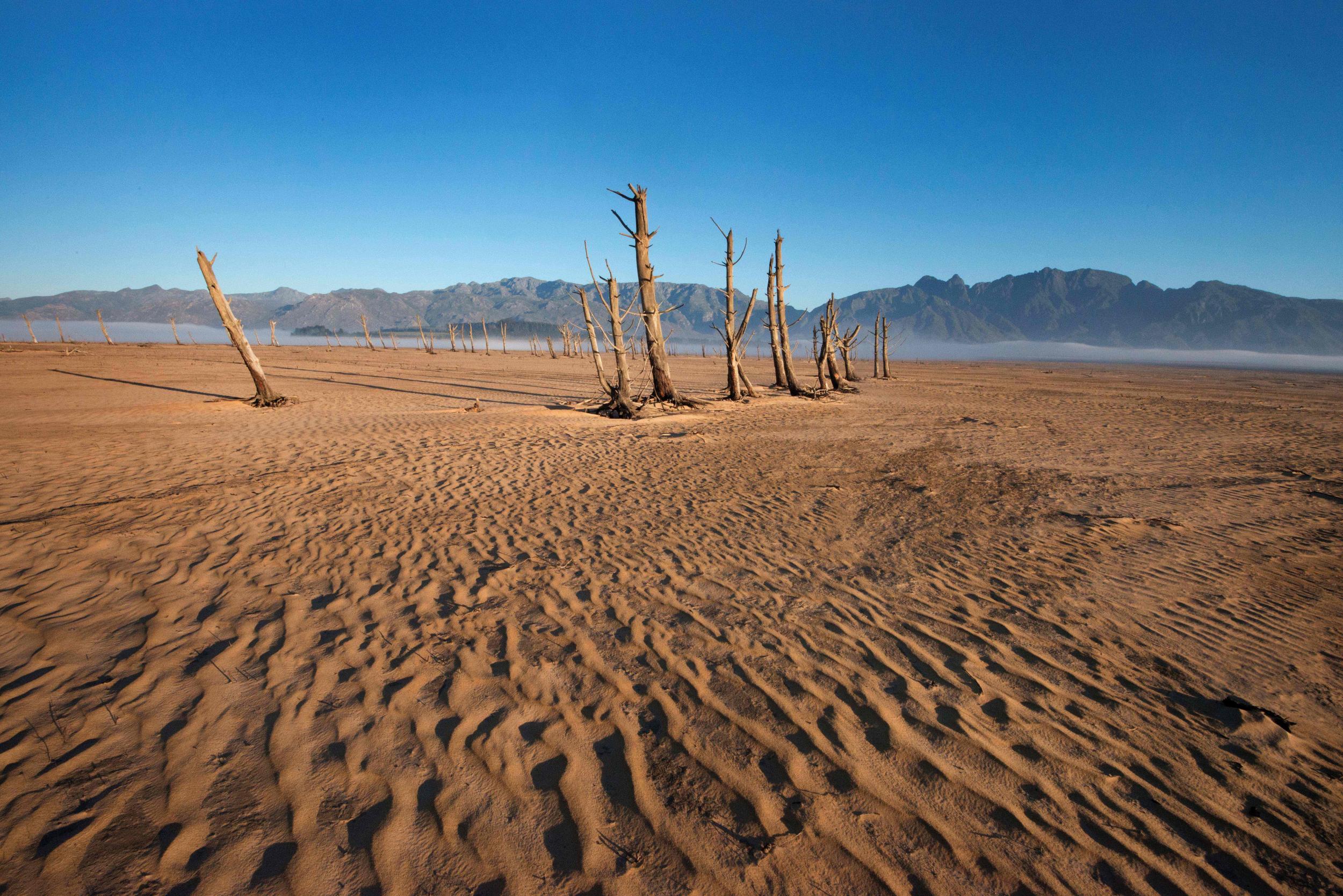Cape Town could become first major city in world to run out of water after 90-day warning
South African city's mayor warns supply will run dry in April on 'day zero'
Your support helps us to tell the story
From reproductive rights to climate change to Big Tech, The Independent is on the ground when the story is developing. Whether it's investigating the financials of Elon Musk's pro-Trump PAC or producing our latest documentary, 'The A Word', which shines a light on the American women fighting for reproductive rights, we know how important it is to parse out the facts from the messaging.
At such a critical moment in US history, we need reporters on the ground. Your donation allows us to keep sending journalists to speak to both sides of the story.
The Independent is trusted by Americans across the entire political spectrum. And unlike many other quality news outlets, we choose not to lock Americans out of our reporting and analysis with paywalls. We believe quality journalism should be available to everyone, paid for by those who can afford it.
Your support makes all the difference.Cape Town may become the first large city in the world to run out of water, as officials warn there are fewer than 90 days left before the supply runs dry.
The city’s mayor Patricia De Lille said residents had until 22 April until “day zero”, when authorities have estimated the water supply will be finished if residents do not scale back their usage.
As a result, officials have introduced strict measures to limit the consumption of available water, including capping usage at 87 litres per person per day.
The crisis is the result of three years of low rainfall and drought, coupled with a growing population and an increase in water consumption.
Storage levels in dams serving the coastal South African city dropped to below 30 per cent, but once the dams reach 13.5 per cent capacity the municipal water supply will be turned off for all but essential services, such as supplies to hospitals.
If the taps are turned off, residents will be required to travel to one of the 200 municipal water points across the city to collect a maximum ration of 25 litres per day.

In response to the dwindling water supplies, authorities have imposed severe restrictions.
Cape Town’s four million residents have been told to keep their showers under two minutes and have been banned from watering gardens, washing cars and filling swimming pools.
People have also been told to recycle bathwater and limit their usage of washing machines.
Speaking to South Africa’s Times, the head of Cape Town’s water and sanitation department Peter Flower said the prospect of the water supply running out was “terrifying”.
“Residential customers remain the largest portion of water users. If we can bring consumption down to 500 million litres per day‚ we will be able to avoid day zero‚” he said.
Cape Town authorities are trying to top up water levels in the city’s surrounding dams using techniques such as drilling into aquifers, recycling wastewater and the desalination of seawater.

Join our commenting forum
Join thought-provoking conversations, follow other Independent readers and see their replies
Comments